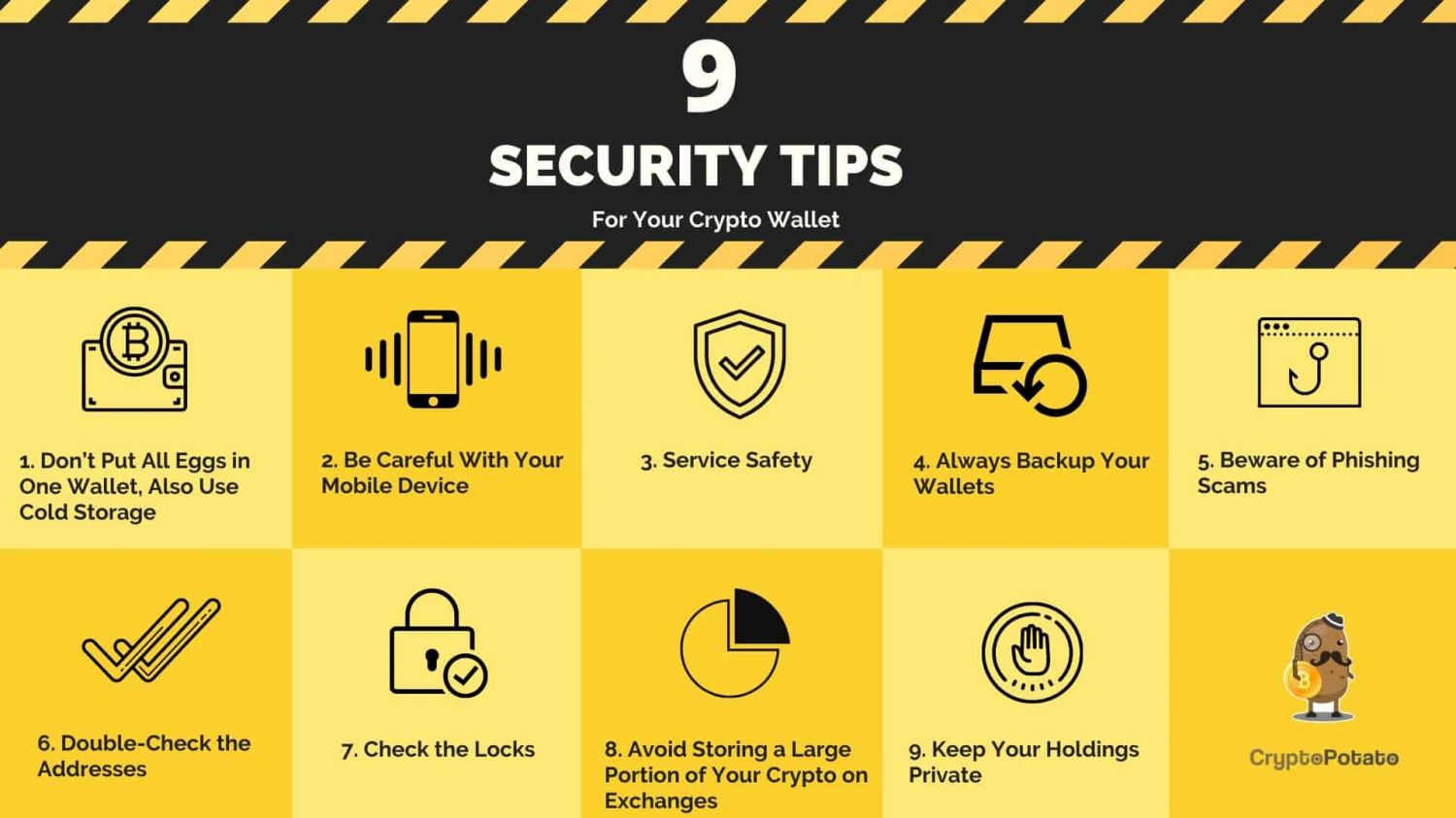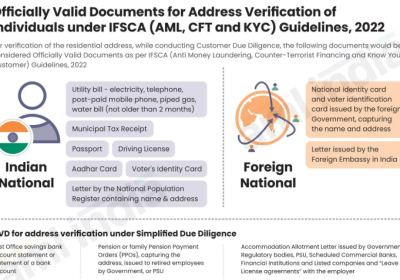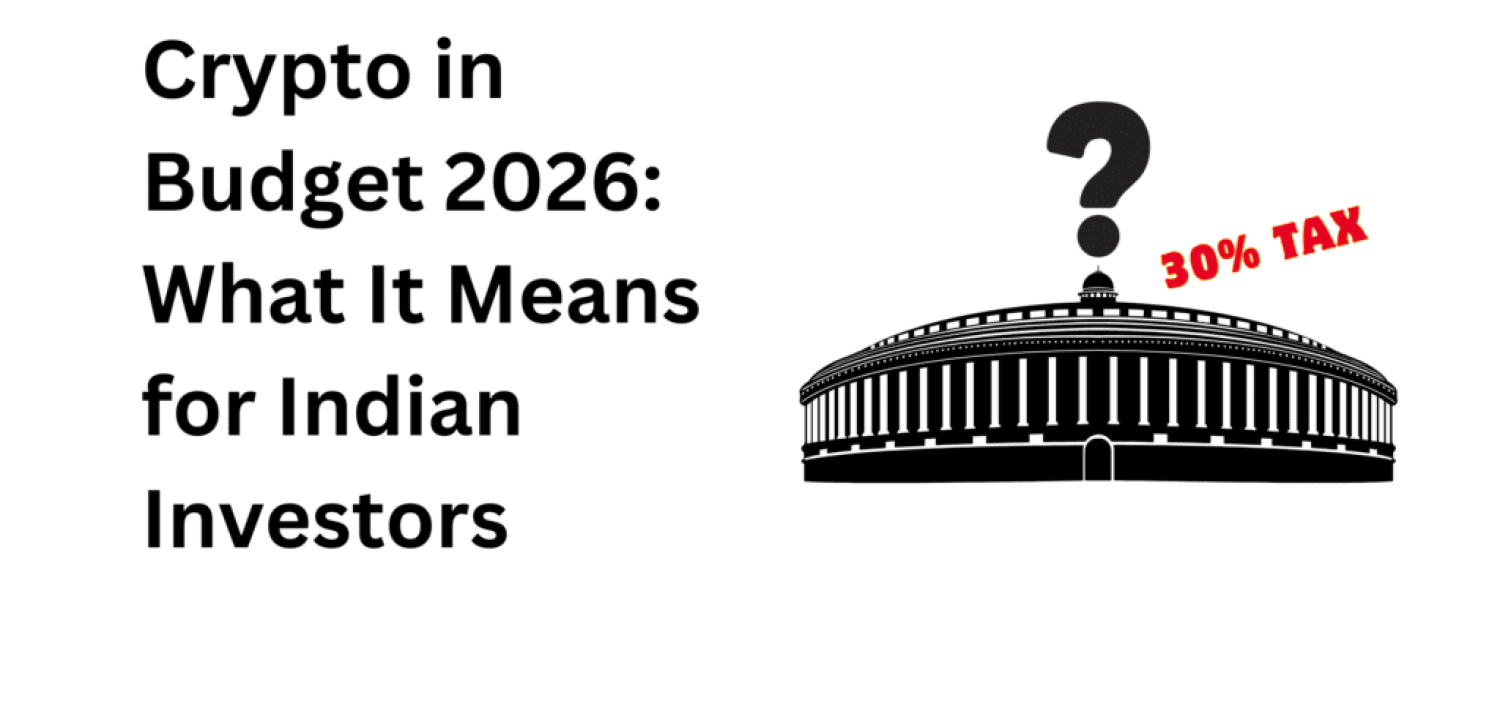Table of Contents

CRYPTOCURRENCY SECURITY: A DIGITAL WAY TO PROTECT INVESTMENT
How does one retain a high standard of workflow? How are you able to keep your team connected and receptive to collaboration when they’re separated? is that this the proper time to upscale the business and pursue new markets or clients?
Perhaps most pertinent to the immediate way forward for businesses are concerns surrounding security. But what exactly are these concerns and the way are you able to notice them before the crack gets too big to fill.
EQUIPMENT AND SOFTWARE FAULTS
Very few companies were fully prepared to transition to remote working. Those with limited access to essential digital tools and lacking in sophisticated HR practices have struggled to seek out the way to copy the productivity and positive environment of their office from the comfort of their own homes.
Most importantly, however, many companies lacked the fundamental equipment to form remote working an occasion.
The absence of laptops, webcams, and proper desk chairs has brought many companies to a halt and compelled them to improvise for the nonce. As some businesses rushed around for an answer there are many that likely didn't make the foremost secure choice when it came to both software and hardware investments.
Businesses transitioning to hardware more suited to remote working (such as trading in cumbersome PCs for lightweight laptops) were faced with a call of balancing cost against security. If you’re not within the position to shop for entire equipment straight from the manufacturer or a licensed retailer, you risk putting your business and personal data on the road buying a second user. Whether it’s a window device or a second-hand MacBook Pro, it’s imperative you purchase from a respected retailer and online stores with brand cache, comprehensive contact details, and customer support systems.
This also raises a vital question for remote businesses – if your software systems fail are you in a safe position to maneuver to a replacement one, even temporarily? Any new software might not have the safety preferences you need and while there's a general industry standard in situ today it raises concerns regarding delays in your operation.
While often an excellent expense, especially during these financially difficult times, it pays to not skimp on security when upgrading your devices for remote working.
POOR UNDERSTANDING OF ONLINE SECURITY
A 2017 study from the Pew Research Centre showed a shocking lack of information surrounding online security in America – a trend it’s not unreasonable to assume is common throughout the internet-using world.
Cybercrime and the way to defend yourself from it's not a mainstream topic. It’s something we’re all tuned in to and do our greatest with – but these are often half-measures and that we depend on the hope that our employers or insurance will protect us from or cover any damages.
Businesses need to be more thorough in their cybersecurity training efforts. A team member can't be accused of putting the business and sensitive data in harm’s way if they don’t understand the fundamentals of protecting themselves online and haven’t been provided the tools to try and do so.
There are a variety of low-cost online security training courses employers can ask their teams to complete to urge them up to this point with the fundamentals of protecting their devices, help them understand the importance of secure connections, and establish a company-wide protocol within the event of a security breach.
Employers should also look to supply staff with essential tools like VPNs they'll log into day by day to form a firewall and ensure they’re engaged on a protected connection without requiring in-depth technical knowledge.
It’s also vital to contemplate the quantity of coronavirus and remote working-centric security issues that have popped up over the previous few months. From scams concerning vital virus information to fake invites to Zoom meetings, these adaptive cybercrimes are a thorn within the side of the many businesses throughout the pandemic. As businesses progress with remote working, they have to form sure their staff is acutely educated to the current unique, potentially very harmful trend.
POOR PERSONAL DILIGENCE
Of course, there's only most a business can do to safeguard both its physical and digital assets. Companies can educate their staff, but those individuals have to pay due diligence to how safe their personal remote working environment is. this can be one of the foremost immediate threats facing business security in an age of remote working.
Consider how a big number of younger workforces’ lives. They’re in shared houses, often with people, they’re not conversant in on a private level. This does raise the likelihood, albeit rare, for workers to compromise important security details through carelessness.
Outside of non-public issues with people they brook, workers also face the likelihood of theft – a growing concern as thieves realize more and more people are keeping important expensive equipment in their homes on an everyday basis.
This is for the foremost part rectifiable through simple education, personal security, and establishing a transparent distinction between work and residential life. Business equipment cannot be used for private reasons and employees should be discouraged from having it available when not on time period. Having an appropriate use policy may be a brilliant thanks to outlining exactly what's expected from employees.
SECURITY LEVEL OF CRYPTOCURRENCY
Blockchain technology is usually accustomed create cryptocurrencies. These transactions are therefore recorded in blocks and are time-stamped which is described by blockchain. it is a lengthy, complicated procedure, but the result's a secure digital ledger of cryptocurrency transactions that hackers can't influence.
Transactions also necessitate a two-factor authentication process. While security measures are in situ, this doesn't mean that cryptocurrencies are proof against hackers. Thus, it is obvious, that the security of cryptocurrency should be stressed when cryptocurrency is somewhat safe. Let's understand the risks that arise while engaging within the crypto sector.
Risk 1: When People Leave Cryptocurrency on Exchanges
Many people leave their cryptocurrency on exchanges after they first start trading cryptocurrencies. it is simple since the funds and crypto coins are readily available for transactions. Still, hackers, unfortunately, also love the thought that most cryptocurrency is in one single location, ready for the taking. Moreover, exchange hacking isn't confined to other parties; employees and even exchange founders have committed significant fraud.
Risk 2: Storing Cryptocurrency Locally
In contrast to leaving seed phrases in centralized cloud storage, several samples of seed phrases are insured on local devices and subsequently being lost or stolen, or the PIN/Password is forgotten. the matter with local storage is that it is simple to misplace it or for somebody to trace you down and steal it.
Risk 3: Being Targeted by Criminals.
The possibility of your crypto being targeted is kind of real because most of the non-public information is out available to anyone who wants to focus on us. Email phishing attacks, SIM Swap assaults that bypass 2-factor authentication, and other smart social engineering tactics are all samples of personal assaults. In 2020, DeFi protocols were employed in the bulk of crypto thefts (50 percent).
Risk 4: Accidental Loss and Natural Disasters
The amount of cryptocurrency lost because of accidents and natural disasters are challenging to estimate. However, it's estimated to be within the billions of dollars. Accidents have played a job too. many folks believe that the foremost common reason behind loss forgets PINs and passwords, whether or not you are taking safety measures. But accidents and natural disasters also are a break. This factor is sometimes left out lots while addressing the problem of cryptocurrency security.
Risk 5: Loss of Generational Wealth
We don't usually consider death or incapacitation when contemplating the way to enter the entirely new world of crypto, but the repercussions of how crypto is secure mean that certain safeguards must be taken to keep up the accessibility of funds by future generations. This begins with consulting with a trust and estate lawyer to make a will and a technique for distributing assets to beneficiaries.
While there are many folks out there discovering the enjoyment of remote working and it's keeping us safe in one sense – in another, it's exposing a generation of workers not well-versed in online safety to the tough reality of internet security issues.
A combination of sophisticated tools, military training and keeping work and residential lives separate should be enough for many businesses. However, all should consider the weather unique to what they are doing.
Recently, the biggest cryptocurrency, Bitcoin, rose to quite $12,000 in trading value, which is its highest level since August 2019. the value swings of cryptocurrencies are erratic, attracting both investors and cybercriminals. Since its inception in 2009, there are numerous hacks and heists reported on cryptocurrency exchanges and crypto wallets. per the “2019 Cryptocurrency Anti-Money Laundering (AML)” report from blockchain security firm Cipher Trace, cryptocurrency crimes across the planet hit over $4.3 billion in 2019. As per the data available, the cybercriminals robbed over $125 million in the currencies involving Ethereum, Bitcoin, and other digital currencies from different cryptocurrency exchanges and that too in a single year 2019.
The threat to your digital currencies is principally through cryptocurrency wallets (digital wallets) or exchange providers. A crypto wallet doesn't store your digital coins, but it holds a personal key, which allows you to trade cryptocurrency online. This private secret is your digital identity to the cryptocurrency market and anyone who gets hold of this may perform fraudulent transactions or steal your crypto coins. Cybercriminals use sophisticated techniques to compromise digital wallets and steal/transfer crypto assets without the user’s knowledge. Securing your wallet is important when it involves protecting your digital currency against cyberattacks.
Cryptocurrency security encompasses everything you would like to grasp about the potential dangers with cryptocurrency, yet because the fundamentals of what you'll do to create your setting associated with your crypto investments or trades in order to have a safer crypto asset.
You should remember that a centralized cryptocurrency service doesn't offer the identical level of cash security as a bank. Crypto brokers, for instance, aren't as tightly regulated, and if funds are lost, they will be lost permanently. it's vital to stay updated with information on cryptocurrency security to grasp what can fail and the way to forestall such situations from arising.
CRYPTOCURRENCY SECURITY - MEASURES REQUIRED
Hackers' work may well be difficult to trace since their digital footprints can be erased. Investors have little legal recourse if their cryptocurrency account is hacked because the virtual coins are currently unregulated by any government organization or financial organization. therefore, the next part of cryptocurrency security is knowing about necessary measures to require.
Here are a number of the ways to secure your cryptocurrency:
- Research About Exchanges
Learn and research extensively about cryptocurrency exchanges before you invest one dollar. These platforms let users purchase and sell digital currencies, but there are different exchanges to pick out from. Before making a choice, do your homework, study reviews, and speak with passed-through investors.
- Understand How to Store Your Cryptocurrency Safely
You must store cryptocurrency if you get it. you'll put it aside in an exceedingly digital wallet or on an exchange. While there are numerous wallets, each has its own set of benefits, technological needs, and safety features. you must research your storage options before investing, even as you'd with exchanges.
- When It Involves Digital Wallet Security, Use A Hybrid Strategy.
Online wallets have become increasingly popular, attracting the eye of hackers. the bulk of a consumer's cryptocurrency should be stored in offline or physical wallets, with only a little amount kept in a web wallet. The physical wallet should be kept safe, like in an exceedingly safe or a security strongbox. Separating the private and public keys is additionally a decent idea. Where it is possible, both of these be secured using complex passwords and multifactor authentication.
- The Employment of Two Strong Passwords Is Important.
Never use the identical password for several accounts, especially since cryptocurrency services are a preferred target for cybercriminals. Assume that they're going to all have an information breach at some point. Limit your risk employing a different, strong password for every, preferably with two-factor verification and password rotation.
- Engage With Trustworthy Cryptocurrency Wallets, Exchanges, Brokerages, And Mobile Apps.
Investors should carefully examine each platform's safety features before picking which to use to know how their data are going to be secured. When keeping crypto, entities who will be trusted should have taken optimal security measures, including multi-factor authentication, SSL/TLS encryption, and air-gapped devices kept offline. Whether you're using one or multiple cryptocurrency platforms, it is vital to stay a secure password manager readily available to avoid losing credentials.
- Keep The Key to Yourself.
The secret key's accustomed verify that the person sending or receiving the digital currencies is that the wallet's owner. Cold storage is that the safest technique to store your private key. Printing out your key and erasing all digital traces of it's what cold storage entails.
- Use A Cold Wallet
Unlike hot wallets, cold wallets don't connect with the web therefore, they're not susceptible to cyberattacks. Storing your private keys during a cold wallet, also called a hardware wallet, is that the most viable option as these come encrypted, keeping your keys secure.
In 2019, the Japanese exchange BITpoint discovered an unauthorized withdrawal of $32 million from its hot wallet in several cryptocurrencies targeting quite 50,000 users. The exchange was holding five cryptocurrencies in their hot wallet namely - Bitcoin, Bitcoin Cash, Ethereum, Litecoin, and Ripple. However, BIT point clarified that its cold wallet and cash holdings weren't affected by the incident.
- Use Secure Internet
While undertaking trading or crypto transactions, a person is advised to use only secure internet connection and shall avoid public Wi-Fi networks. Even at the time of accessing the home network, one must use a VPN for extra security. A VPN changes your IP address and site, keeping your browsing activity safe and personal from threat actors.
- Maintain Multiple Wallets
Since there's no limitation for wallet creation, you'll be able to diversify your cryptocurrency investments in multiple wallets. Use one wallet for your daily transactions and keep the remainder in a very separate wallet. this can protect your portfolio and mitigate the loss of any breach to your crypto account.
- Secure Your Personal Device
Make sure your personal device is up thus far with the most recent virus definitions to defend against newly discovered vulnerabilities. Use a powerful anti-virus and firewall to boost your device’s security to avoid hackers from taking advantage of the weakness by writing code to focus on the vulnerability.
- Change Your Password Regularly
We cannot underrate the importance of a powerful password while talking about security. per a study, three-quarters of millennials within the U.S. use the identical password on over 10 devices, apps, and other social media accounts. It also stated that the majority of them were using the identical password in over 50 different places. ensure you've got a robust and complicated password, which is difficult to guess and alter it on an everyday basis. Use separate passwords if you've got multiple wallets. go for two-factor authentication (2FA) or multi-factor authentication (MFA) for extra security.
- Don’t Get Phished
Phishing scams via malicious ads and emails are rampant within the cryptocurrency world. use caution while making crypto transactions and avoid any suspicious and unknown links.
In a recent cryptocurrency heist, a hacking group “Crypto Core” targeted cryptocurrency exchanges via spear-phishing campaigns. Attackers stole cryptocurrency worth $200 million in two years, targeting companies within the U.S. and Japan since 2018. Clear Sky stated that Crypto Core initiated a reconnaissance phase to spot the e-mail accounts of the cryptocurrency exchange’s employees and security executives before conducting a spear-phishing attack. The attacks were performed with the help of fake domains impersonating affiliated organizations and employees and thereby embedding malicious links in documents via emails.
CRYPTOCURRENCY SECURITY: TIPS FOR SECURED INVESTMENT
Cryptocurrencies are usually built using blockchain technology. Blockchain is basically a process by which a transaction is recorded into blocks and is time-stamped. It is indeed a complex and technical process, however, the result of a digital ledger of cryptocurrency transactions is that, it becomes really hard for hackers to tamper with.
In addition, transactions require a two-factor authentication process. for example, you may be asked to enter a username and password to begin a transaction. Then, you may need to enter an authentication code that's sent via text to your personal cellular phone.
It is to be noted, that storage of securities in situ, in no way means that the cryptocurrencies are un-hackable. Rather, many cases involving high-dollar hacks have cost cryptocurrency startups heavily. Hackers costed Coin check, a whopping amount of $534 million and to BitGrail $195 million in 2018. That made them two of the most important cryptocurrency hacks of 2018, in line with Investopedia.
TIPS FOR CRYPTOCURRENCY SAFETY
Investments are always risky, but some experts say cryptocurrency is one of the riskier investment choices out there, in step with Consumer Reports. However, digital currencies also are a number of the most popular commodities. Earlier this year, CNBC forecasted that the cryptocurrency market is anticipated to achieve a price of $1 trillion by the top of 2018. If you're getting to invest in cryptocurrencies, the following tips can facilitate your make educated choices.
- Research Exchanges
Before you invest one dollar, study cryptocurrency exchanges. These platforms provide the means to shop for and sell digital currencies, but there are 500 exchanges to settle on from, per Bitcoin.com. Do your research, read reviews and talk with felt investors before moving forward.
- Know How to Store Your Digital Currency
If you get cryptocurrency, you've got to store it. you'll store it on an exchange or during a digital "wallet," for instance one in every of the crypto wallets described in our Blog post Which cryptocurrency wallet to settle on. While there are many alternative types of wallets, each has its own benefits, technical requirements, and security. like exchanges, you must investigate your storage choices before investing.
- Diversify Your Investments
Diversification shall be termed as the key to any good investment strategy, and the same shall stand true, in case of investing in cryptocurrency too. Don't put all of your money in Bitcoin, as an example, simply because that is the name you recognize. There are plenty of options available in the market, and it is advisable to have a spread investment around various currencies.
- Prepare for Volatility
The cryptocurrency market could be a volatile one, so be prepared for ups and downs. you will see dramatic swings in prices. Where the investment portfolio or mental wellbeing of the person is not competent enough to handle that, it is advisable not to invest in cryptocurrency.
Cryptocurrency is all the craze at once, but remember, it's still in its infancy. It is always said, that investing in new options, always come with challenges as well, thus, one should be prepared for the same. If you intend to participate, do your research and invest conservatively to begin.
CONCLUSION
The cryptocurrency industry is consistently evolving, and it's your sole responsibility to guard your digital funds by securing your wallet with essential safety precautions. Update yourself with the newest security news, attack techniques, and prevention strategies.
You can only select the most effective thanks to picking and founded your crypto wallet and other digital assets with seed phrase backups and other wallet setup options and hope to avoid tragic situations from going down. But keeping yourself posted with information and updates associated with cryptocurrency security is typically the simplest option when it involves taking the simplest measures for staying safe within the crypto world.
Also Read articles :

















